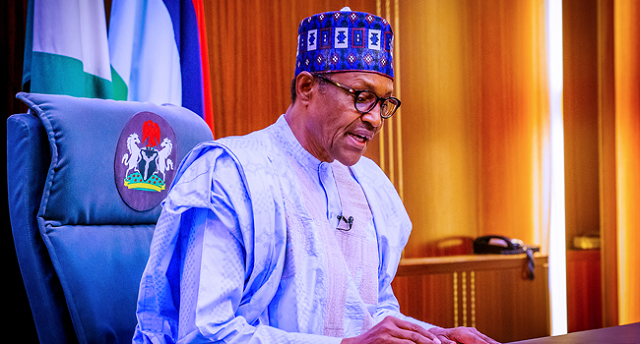Business enterprises and government ministries, departments and agencies (MDAs) have been given a presidential order to grant system access to the Federal Inland Revenue Service (FIRS) for tax collection.
President Muhammadu Buhari gave the directive during his address at the first annual national tax dialogue, which took place at the presidential villa, Abuja, on Thursday.
The dialogue was organized by the Federal Inland Revenue Service (FIRS) with the theme, “Taxation in a post-Covid Economy”.
READ ALSO: NGF Inaugurates COVID-19 Vaccines Advisory Team
In a statement, Abdullahi Ismaila Ahmad, FIRS director of communications and liaison, quoted Buhari as directing FIRS to “speedily put all measures in place to fully implement programmes to stamp out Base Erosion and Profit Shifting in all of its ramifications and generally automate its tax processes.”
“I have directed all government agencies and business enterprises to grant FIRS access to their systems for seamless connection. We all are now living in a fast digitalising world. As such, business transactions are continually being migrated from “brick and mortar” locations to digital places or spaces,” Buhari said.
“It is therefore incumbent upon tax authorities to adopt digital means to efficiently track taxable transactions for the purpose of collecting taxes. In order to provide the necessary legislative framework for the adoption of technology in tax administration, we also made necessary amendments to the FIRS Establishment Act in the Finance Act 2020.”
In his welcome address, Muhammad Nami, FIRS executive chairman, said the agency is working towards “developing a robust digitalisation roadmap”.
READ ALSO: Buhari Retains Bala Usman As NPA MD
He said FIRS would match on to digitalise the tax process fully, adding that the cooperation of the three tiers of government, the citizens and corporate organisations in the country is key for the success of the digitalization drive.
“The FIRS started the journey to automation several years ago when it launched “Project Fact”. Several other initiatives were launched to further take advantage of evolving technology in taxpayer registration, online payment platforms, remote filing of returns, etc. However, there was very limited success with the various initiatives due to inadequate statutory framework,” he said.
“A quantum leap was achieved with the 2020 Finance Act which copiously provided legal grounds for deployment of technology in tax administration. The Service is grateful to the President, the leadership of the National Assembly, the Honourable Minister of Finance, Budget and National Planning and all other stakeholders that worked together to enact the necessary laws.
“The Service is taking advantage of the new law to embark on studies (with the assistance of friendly tax authorities and international tax organisations) with a view to developing a robust digitalisation roadmap. The roadmap will enable the Service to digitalise its whole operations (end-to-end) in a systematic, coherent and efficient manner.
“There is so much to look forward to in the coming years. The FIRS is starting this decade with the resolve to leapfrog tax administration into the digital age. Ladies and gentlemen, we are banking on your continued support as we embark on this onerous journey.”












